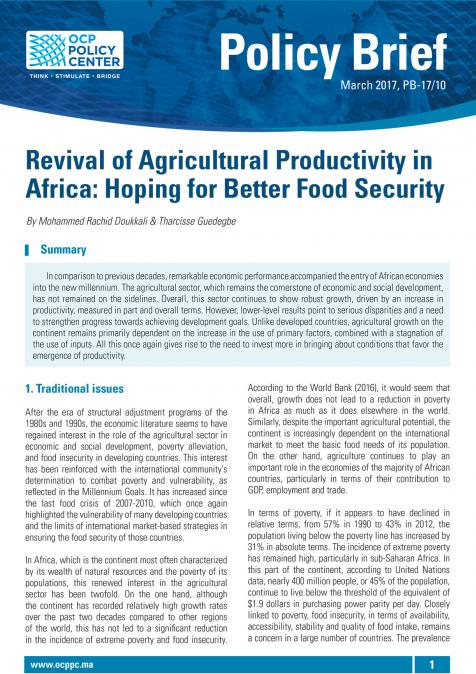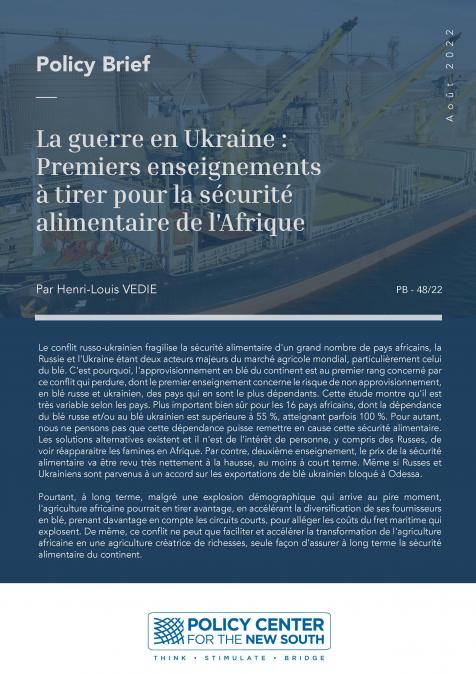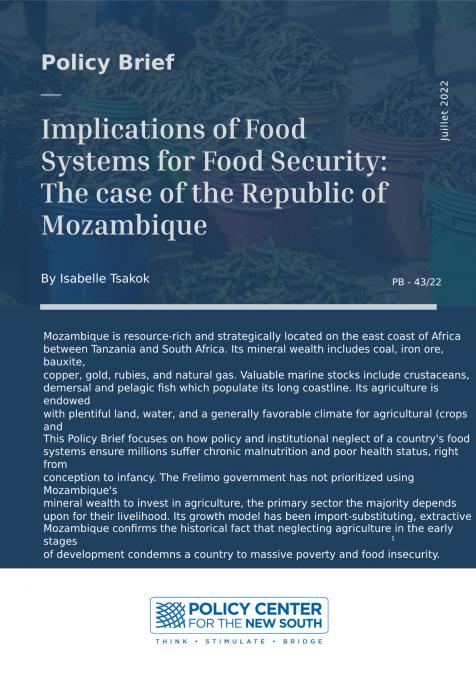Publications /
Policy Brief
In comparison to previous decades, remarkable economic performance accompanied the entry of African economies into the new millennium. The agricultural sector, which remains the cornerstone of economic and social development, has not remained on the sidelines. Overall, this sector continues to show robust growth, driven by an increase in productivity, measured in part and overall terms. However, lower-level results point to serious disparities and a need to strengthen progress towards achieving development goals. Unlike developed countries, agricultural growth on the continent remains primarily dependent on the increase in the use of primary factors, combined with a stagnation of the use of inputs. All this once again gives rise to the need to invest more in bringing about conditions that favor the emergence of productivity.











